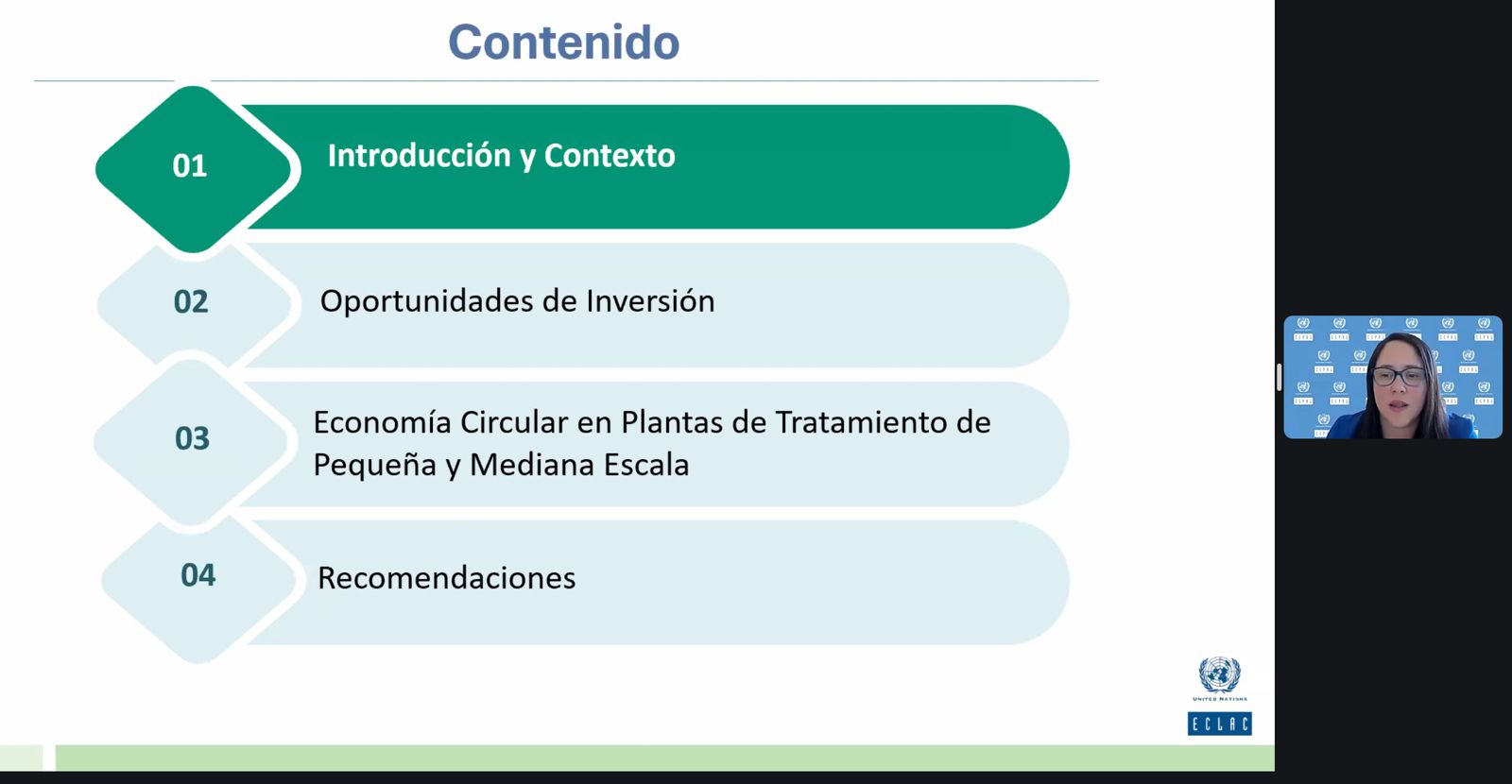IX International Meeting BIBLO 2024: Circular Economy Opportunities in Wastewater Treatment
Work area(s)
Topic(s)
As part of the IX International Meeting on Library and Information Sciences, Dr. Silvia Saravia Matus from ECLAC delivered a keynote speech on the challenges of wastewater management in Latin America and the Caribbean. She emphasized the urgent need to apply circular economy strategies in treatment plants to mitigate environmental impact while generating social and economic benefits. The event was organized by the Environmental Library of Peru’s Ministry of the Environment, co-organized by Fundación CRATE of Chile. Experts from various institutions came together to discuss sustainable solutions to water scarcity and pollution in the region.

The IX International Meeting on Library and Information Sciences (BIBLO 2024), held on November 29 in Lima, Peru, with over 250 participants connecting remotely, focused on the theme “Water for Sustainable Development: Water Scarcity and Pollution in Peru and Latin America.” The event gathered experts from diverse disciplines to analyze challenges and solutions related to sustainable water management.
Dr. Silvia Saravia Matus, Economic Affairs Officer at ECLAC’s Division of Natural Resources, delivered a keynote address titled “The Challenges of Wastewater Management in Latin America and the Caribbean and Circular Economy Opportunities in Its Treatment.” During her presentation, she shared alarming data: over 40% of methane emissions in the region originate from linear wastewater treatment systems, and only 46% of wastewater is adequately treated, a figure below the global average of 55.5%.
ECLAC’s main proposals include implementing methane recovery technologies in small and medium-sized plants, offering potential for renewable energy generation and operational cost reductions of up to 40%. Pilot studies conducted in Mexico and El Salvador have demonstrated high economic feasibility, with average investment payback periods of five years.
The event also featured contributions from institutions such as IDE Water Technologies, SENAMHI, INTE-PUCP, and OEFA, which provided insights on monitoring hydrological drought, payment mechanisms for ecosystem services, and the nexus between water scarcity and gender equity.
Dr. Saravia’s presentation concluded with a call to strengthen water governance and foster inter-institutional collaborations to implement circular economy models that prioritize environmental sustainability and social well-being. This message aligned with the mission of BIBLO 2024 to promote knowledge sharing and innovative solutions addressing water challenges in the region.
Country(ies)
-
Peru